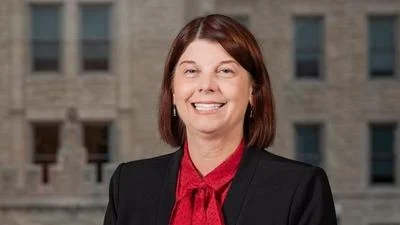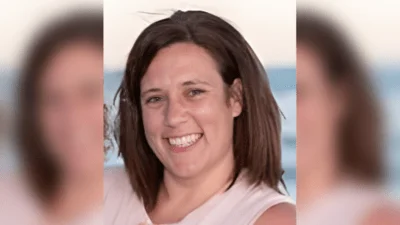Morris Hospital issued the following announcement on Oct. 1
An experimental outpatient treatment continues to play a significant role at Morris Hospital for minimizing hospitalizations in specific patients who are at risk for developing severe illness resulting from COVID-19.
Since last December, Morris Hospital & Healthcare Centers has administered monoclonal antibody infusion therapy to 218 outpatients diagnosed with mild-to-moderate COVID-19 infection who met specific criteria that makes them at higher risk for severe illness. Out of that total, 62 of the 218 infusions have been given in just the past month, according to Morris Hospital’s Infectious Disease Physician Dr. John Bolden.
“We’ve treated a lot of patients since the end of August,” says Dr. Bolden. “The treatment has performed well. It’s done what the objective is, and that’s to keep people who are mild to moderately ill with COVID-19 from progressing to severe illness. It has definitely managed to keep people out of the hospital.”
The monoclonal antibody infusion delivers a neutralizing antibody medicine containing man-made antibodies that are similar to the antibodies of patients who recovered from COVID-19. Most receive this outpatient infusion therapy in a dedicated, negative air pressure area at Morris Hospital, but the hospital more recently added the ability to administer the infusion during an emergency department visit when concerns arise about the patient’s severity of illness, duration of illness, transportation needs or mobility. Another significant enhancement has been the ability to reduce the time it takes to administer the treatment, from 60 minutes to 21 minutes, which has benefits for both the patient and hospital.
“It’s a win-win for everyone,” Dr. Bolden says. “If a patient is diagnosed with COVID-19 in the emergency department and they are eligible to receive monoclonal therapy, they may be able to receive the treatment before they leave the ED rather than come back for an outpatient treatment at a later date. It’s on a case-by-case basis, but we can deliver this very easily now that it’s a 20-minute treatment.”
Eligibility requirements for monoclonal antibody infusion are limited to individuals age 12 years and older who are categorized as high-risk which may include having a body mass index of 35 or higher, diabetes, chronic kidney disease, a condition that weakens the immune system, or being age 65 or older. Individuals age 55 or older may also qualify if they have heart disease, high blood pressure or long-term lung disease. In addition, those being considered for monoclonal antibody infusion must be able to be scheduled for infusion as soon as possible after testing positive for COVID-19 and within 10 days of symptom onset. Hospitalized patients and those requiring oxygen therapy are unable to receive the treatment.
As Dr. Bolden emphasizes, the monoclonal antibody infusion is not a substitute for getting vaccinated. The infusion is a treatment for acute infection, while the purpose of the COVID vaccine is to prevent infection by producing antibodies for long-term immunity. In fact, he estimates that approximately 90 percent of the patients who have received this treatment at Morris Hospital due to COVID-19 have been unvaccinated patients.
“Over the long run, the vaccine is the most effective mode of protection against COVID,” he says. “The monoclonal antibody treatment just jumpstarts your immune system if you have tested positive for COVID and causes the antibody levels to increase.”
Of the 218 patients who received the monoclonal antibody infusion therapy, Dr. Bolden estimates fewer than 10 have ended up in the hospital due to severe illness. In addition, Dr. Bolden says patients who received the monoclonal antibody infusion reported noticeable improvement in their conditions and easing of symptoms such as fatigue, cough and difficulty breathing.
“It definitely decreases the duration of COVID symptoms in terms of the number of days they felt ill,” Dr. Bolden says. “I’ve been satisfied with how the treatment has performed in terms of keeping people out of the hospital
Original source can be found here.




 Alerts Sign-up
Alerts Sign-up